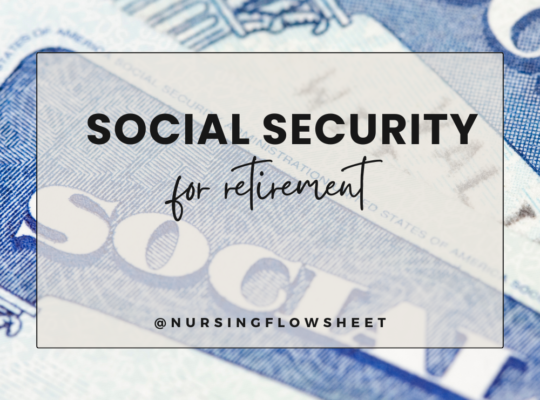-0001.png/:/cr=t:0%25,l:0%25,w:100%25,h:100%25/rs=w:1280)
If you work a full time job and getting a medical plan from your employer, you’re probably missing out on this amazing investing account that you could use for your retirement. Let me introduce you to.. Health Savings Account
What is a Health Savings Account (HSA)?
Simply stated, a health savings account (HSA) is an account you can set up to pay for out-of-pocket medical expenses and health care costs. You, your spouse and dependent can use this account for medical expenses.
Your health plan must be a high deductible health plan to be eligible to use a health savings account. You can get this through your employer or you can open one for yourself if you qualify.
One of the perks of a HSA is that you can contribute funds to it pre-tax. This could lower down your taxable income. Another perk is that you can withdraw and use your funds TAX-FREE. That’s right, you don’t pay taxes on the way in or the way out.
HSA RULES (more like benefits)
.png/:/cr=t:0%25,l:0%25,w:100%25,h:100%25/rs=w:1280)
As with any accounts, there are rules with HSA that is created by the government:
Here are some rules to be aware of…
Tax-free contributions
This makes it such a great account to use to reduce taxable income. The money you put in the account is tax-free. For example, If you are paid $2000 and you want to put $500 to your HSA every month, you will be taxed on the remaining amount which is $1500.
Tax-free withdrawals
Another rule and perk of HSAs is that you can use your money without paying taxes (as long as it’s used to pay qualified medical expenses). The earnings and interest from this account are not taxed.
Money rolls over
Another rule for HSAs (which is not true for a flexible spending account, or FSA) is that your money stays with you year after year. There is no pressure to use your HSA in your current plan year because your HSA funds roll over to the next year and will be available for you to use then. Even if you change or leave companies, your HSA will stay with you.
Only available with high deductible health care plans
This is probably my main deal-killer. I have been with Kaiser Permanente Health Plan for many years and have established rapport with my PCPs. If you are under Kaiser, HSA is not an available account for you.
- In 2021, the IRS defines this as having a minimum annual deductible of $1,400 and maximum deductible (and out of pocket expense) of $7,000 if you’re in a self-only plan. So, your annual deductible must fall between that range.
- If you’re on a family coverage plan, your minimum deductible must be $2,800 and your maximum $14,000.
- If you’re outside of these ranges, unfortunately, you cannot use an HSA.
Annual contribution limits
In 2021, the annual contribution limit to an HSA is $3,600 for someone on a self-only plan. The maximum contribution limit is $7,200 if you’re on a family plan.
This is the maximum amount of money you can add to this account each year. The one exception is if you are 55 or older there is a catch-up contribution rule and you are able to contribute an additional $1,000 annually.
Only for medical expenses
You must use your HSA only for medical and health care expenses. This is an obvious restriction of this account. As we get older, there will be medical expenses including medical prescriptions, visits to the doctor that we need money to spend on for sure. You can find a list of qualified expenses here:
If you use your HSA for a non-medical expense you will not only be taxed, but also charged a 20% penalty.
Though, once you reach age 65, you can use your HSA for non-medical expenses and will only be taxed based on income (you will not face the additional 20% penalty).
Note: With most HSAs, you can either use a debit card that they provide or your own personal card to cover eligible expenses. If you use your own card, you need to apply to get reimbursed through the plan.
Funds are investable (sometimes)
This rule varies by HSA provider. Some HSA providers let you invest funds (once you hit a certain threshold of funds) just like a 401k would. Others may earn interest. You can invest on index funds or mutual funds. If you need the details on this, just contact your HSA provider to learn more.
How use it at your retirement:
HSA is very beneficial for anyone with a high deductible health plan. The funds that goes in HSA is tax free and you can use funds for medical expenses tax-free.
While many expenses drop in retirement, healthcare expenses spike. You could use your retirement savings from a 401K/Roth IRA/Traditional IRA account to pay for healthcare expenses, but at some point you pay taxes on those funds. If you use your HSA account to pay for healthcare expenses in retirement you will never pay taxes on that money.
.png/:/cr=t:0%25,l:0%25,w:100%25,h:100%25/rs=w:1280)
Tax Implications for Medical Expenses on a Traditional IRA
Let’s say Martha took out $70, 000 year from her traditional IRA when she hit 65 years old. Any money used towards medical expenses from those funds will be taxed. Martha needs basic health coverage and have to pay AT LEAST $140 a month for Medicare part B. This part covers routine doctor visits. Rates for this part will only increase over the years so be prepared to pay more if it’ll be awhile before you hit 65. With today’s tax brackets she will be taxed 22% or $370 on the $1,680she spent for Medicare Part B. That is over $3000 in taxes!
Pay for Medical Expenses in Retirement with HSA Funds
Now, say her friend Anna invested in a HSA and used the funds there to pay for Medicare Part B. She won’t have to pay any taxes!
With the increased costs of healthcare in retirement it may be more beneficial to invest money into an HSA than a 401k. At the age of 65, the funds in an HSA essentially turn into a traditional IRA. This means you could withdrawal money for any purpose and not be penalized for it. You will have to pay taxes on what you take out not related to medical expenses though.
In conclusion,
Health Savings Account is a great account to invest in as a full time worker even as a self-employed if you’re under a high deductible health plan. It has both tax advantages and you can take out funds for medical expenses tax-free. With the increasing costs in healthcare expenses, this a great account to look into to add to your retirement planning.







[…] READ: How you can use your Health Savings Account for Retirement […]
[…] READ: How to use HSA for retirement […]